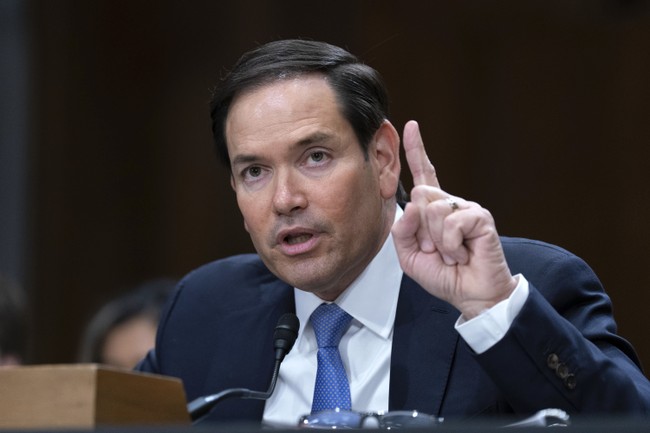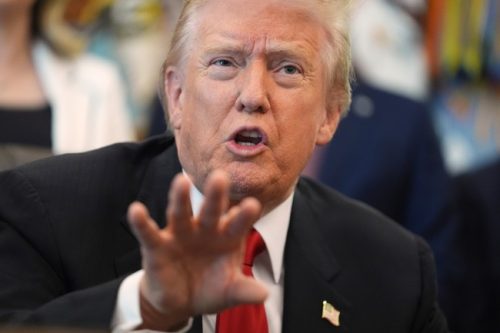Marco Rubio pushed back hard at European criticism of recent U.S. strikes on narco-terrorist vessels, rejecting the idea that the EU gets to define international law and defending the administration’s use of force to protect Americans and regional security.
At a G-7 summit in Canada, Secretary of State Marco Rubio answered bluntly when asked about European officials who labeled U.S. actions illegal. He stressed that allies do not have the authority to dictate how the United States defends itself and framed the strikes as a direct response to attacks on the homeland. The tone was firm and unapologetic, aimed squarely at critics who question U.S. sovereignty over regional security choices.
Rubio told reporters, “I don’t think that the European Union gets to determine what international law is. What they certainly don’t get to determine is how the United States defends its national security,” and he underscored the threat, “The United States is under attack from organized, criminal narcoterrorists in our hemisphere, and the president is responding in the defense of our country.” His words made clear that Washington sees these operations as self-defense, not adventurism. The message was that defending American citizens and borders is nonnegotiable.
Rubio pushed the point further by pointing out the inconsistency he sees in allied demands: “I do find it interesting that all these countries want us to send and supply, for example, nuclear-capable Tomahawk missiles to defend Europe, but when the United States positions aircraft carriers in our hemisphere, where we live, somehow that’s a problem?” He then doubled down on presidential responsibility, saying, “I would say that the United States and this president has made very clear his job is to protect the United States from threats against the United States, and that is what he is doing in this operation.” That contrast was designed to highlight perceived double standards among U.S. partners.
Behind the rhetoric is a string of lethal strikes: the campaign has included 17 strikes on drug trafficking vessels, a tally that U.S. officials say targeted narco-terrorist networks operating in the Caribbean Sea and the Eastern Pacific. Those strikes have resulted in at least 76 deaths, and the human cost has prompted alarm and legal questions from partners and some lawmakers. Washington insists the targets were threats to U.S. security and that the operations were carefully executed to neutralize organized criminal networks tied to terror tactics.
🚨 HOLY CRAP! Sec. Marco Rubio DROPS THE MIC on the EU accusing President Trump of violating "international law" by striking narco-terrorists
"I find it INTERESTING all these countries want us to send nuclear-capable Tomahawk missiles to defend Europe. But when the United States… pic.twitter.com/8LjFCeDc15
— Eric Daugherty (@EricLDaugh) November 12, 2025
Allied reaction has been mixed and in some cases chilly. The United Kingdom reportedly halted intelligence sharing on South American drug traffickers to avoid involvement in further U.S. military actions, a move that signals real diplomatic friction. At the G-7, French Foreign Minister Jean-Noel Barrot was blunt in his criticism, telling reporters that the U.S. “military operations in the Caribbean region … violate international law.” That sharp rebuke set the stage for Rubio’s counter-argument and put legal norms at the center of the public dispute.
Rubio and others in the administration argue that the debate over legality is being framed wrongly by critics who overlook the threat posed by well-armed, organized narcotics networks that use terror tactics. From this perspective, letting foreign bodies dictate America’s defensive posture would amount to surrendering a core sovereign duty. Republicans in general, and Rubio in particular, present the actions as necessary steps to stop transnational criminal organizations from using violence and coercion against civilians and U.S. interests.
The diplomatic fallout has practical consequences beyond words. Intelligence partnerships and operational cooperation are sensitive to political blows, and the UK decision to limit sharing shows how legal wrangling can translate into operational setbacks. For officials who back the strikes, that trade-off is regrettable but secondary to stopping threats that operate with impunity across international waters and exploit weak regional governance. Supporters contend that decisive action, even if contested, prevents worse outcomes for Americans and neighbors alike.
Domestic politics are part of the calculus too. The administration’s posture reflects a broader Republican emphasis on strength and deterrence—using military assets where commanders judge national security to be at risk. Critics call for strict adherence to international legal standards and oversight, while allies push for multilateral approaches. Rubio’s remarks aim to put a fine point on the choice: defend American citizens boldly, or risk inviting further attacks and emboldening violent criminal networks.
Editor’s Note: Thanks to President Trump and his administration’s bold leadership, we are respected on the world stage, and our enemies are being put on notice.






